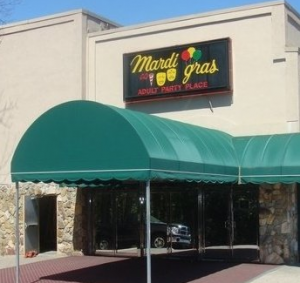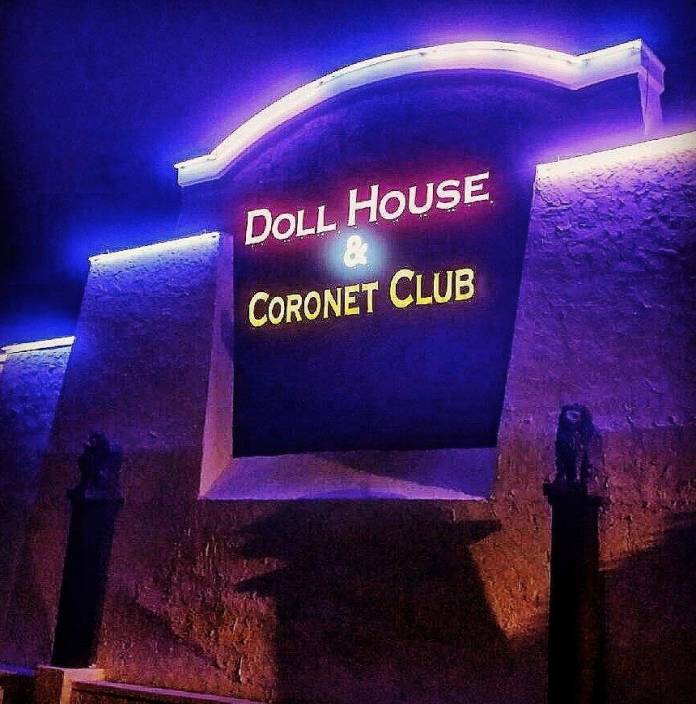Dangerous court ruling leads all strip clubs to close in Sandy Springs, Georgia
In 2005, the city of Sandy Springs, Georgia (a half-hour north of Atlanta), decided to pass laws against strip clubs that would force them to close on Sundays, stop them from selling alcohol and limit their hours of operation. As is the case with many laws passed against strip clubs, the city pointed out the “negative secondary effects” of clubs (clubs allegedly cause blight, lowering of property values, increased crime, etc.) as the justification for the laws.
 Over the course of the next 15-plus years, clubs (and their attorneys) in Sandy Springs fought against these laws. After the city banned alcohol sales, the club filed suit (claiming the ordinance violated the U.S. Constitution’s First and Fourteenth Amendments). Throughout this lengthy litigation, Sandy Springs repeatedly amended its ordinance to eliminate purported unconstitutional provisions and the strip club amended its lawsuit eight times, according to the Atlanta Journal Constitution.
Over the course of the next 15-plus years, clubs (and their attorneys) in Sandy Springs fought against these laws. After the city banned alcohol sales, the club filed suit (claiming the ordinance violated the U.S. Constitution’s First and Fourteenth Amendments). Throughout this lengthy litigation, Sandy Springs repeatedly amended its ordinance to eliminate purported unconstitutional provisions and the strip club amended its lawsuit eight times, according to the Atlanta Journal Constitution.
Finally, in June 2018, the Georgia Supreme Court ruled in favor of the city, a ruling which could potentially have far-reaching effects for all strip clubs in Georgia. The court ruled that Sandy Springs can ban the sale of alcohol at strip clubs and other adult establishments within its city limits. In a decision written by Justice Britt Grant, such laws can “constitutionally regulate negative secondary effects of strip clubs without unduly inhibiting free speech or expression,” Grant’s ruling stated.

Grant also went on to say this: “(The strip club) argues that by prohibiting the profitable combination of live nudity and alcohol, the city will effectively eliminate constitutionally protected conduct; that is, nude dance. But constitutional protections are extended to speech and expression, not to profits.”
Ouch.
The effects of this ruling have been immediate. It was reported on September 19th that all three of Sandy Springs adult nightclubs—Flashers, Coronet Club & Doll House (previously known as Maxim Cabaret) and Mardi Gras—decided to close their doors due to the inability to serve alcohol (thus drastically reducing their profits).
“Our club defies the standards of most strip clubs,” said Mackie Cavanaugh, an employee at Mardis Gras (as reported by the Atlanta Journal Constitution). “For management, waitresses, kitchen staff, everyone who works there, you will be revoking the opportunity to make a living. Our club has not decreased the property values of homes around it. … The club has not had any impact on home values. This is an unprecedented attack on an already marginalized group of women.”

ACE (Association of Club Executives) National Director Angelina Spencer offered some additional perspective to the situation in Sandy Springs. As Spencer explains, the median family income in Sandy Springs is $100k, far above Georgia’s median income of $53k.
“Years ago Sandy Springs introduced a plan for ‘ambitious development’ and a new downtown,” notes Spencer. “One can only speculate that the ‘powers that be’ saw no room for adult entertainment in that aggressive new lineup. Could it happen elsewhere? It has. Toronto clubs have lost ground due to a booming real estate market where in some cases the land is worth more than operations and clubs are closing doors. Miami clubs too, due to development, are bought, and at this point, move to other areas.
“But Georgia, particularly Fulton County, has a long history for being short on limited government when it comes to the right to bare arms—or breasts,” Spencer adds. “Here, a bared boob is a lot more dangerous than a bullet.”





























